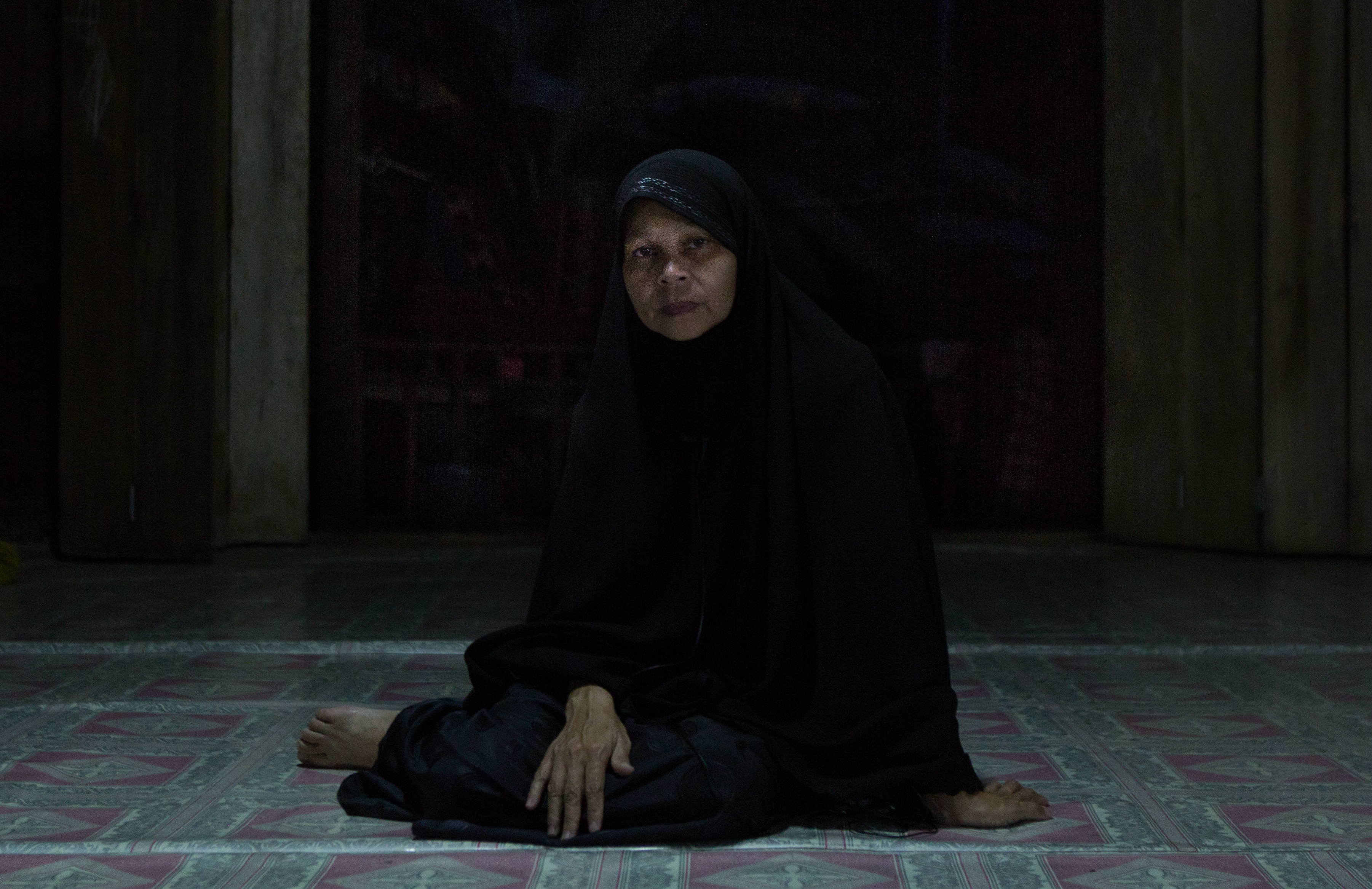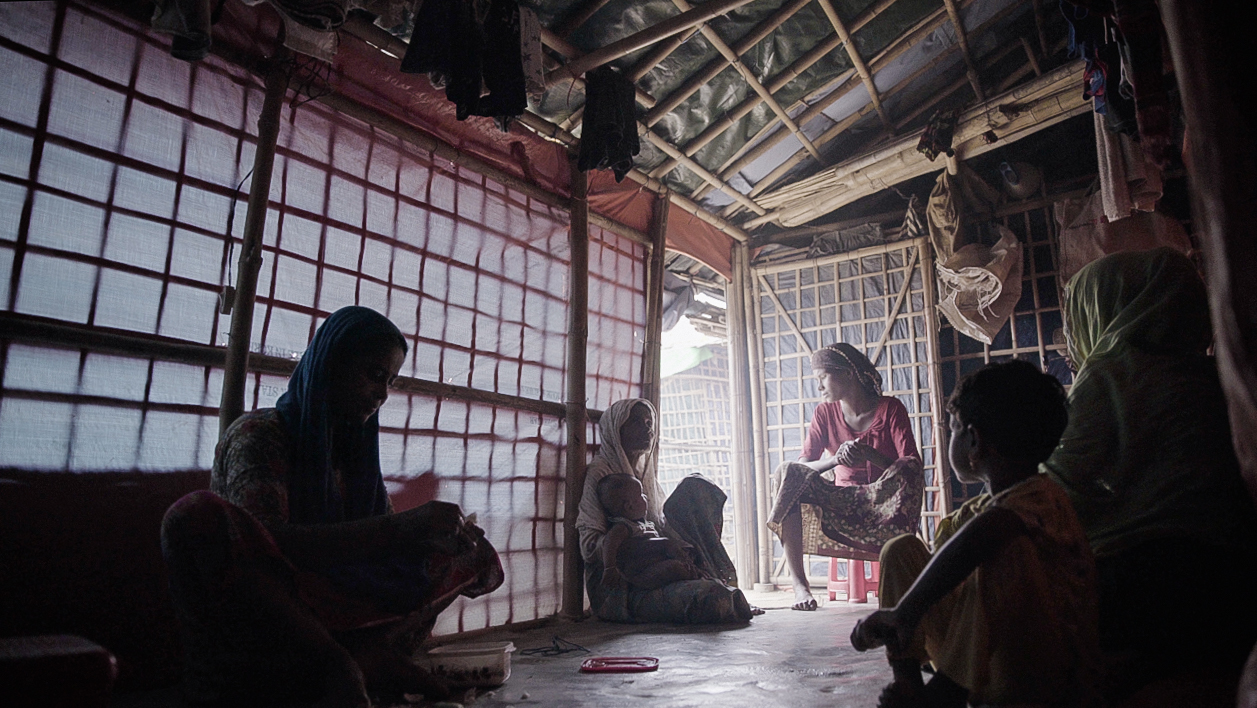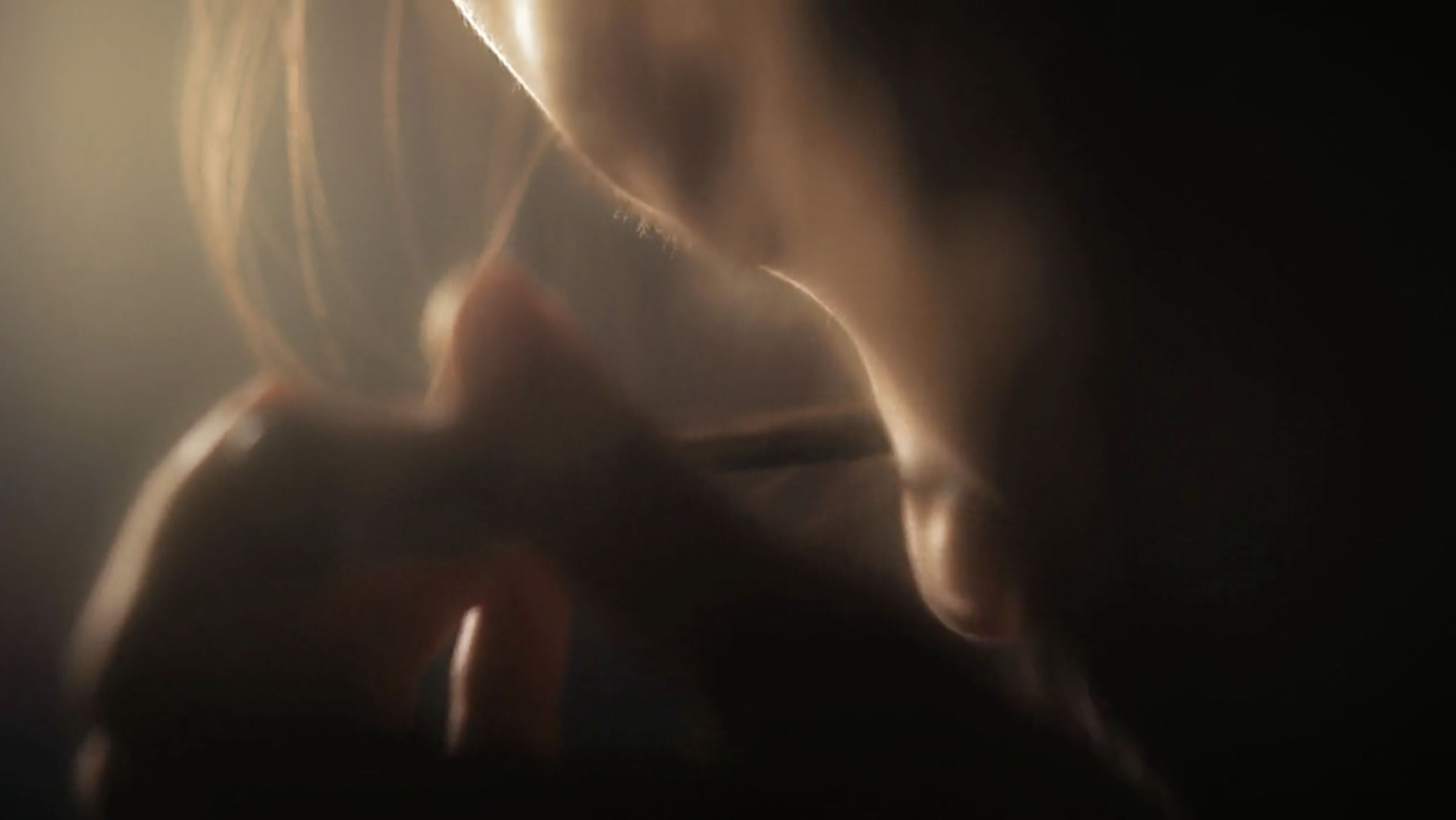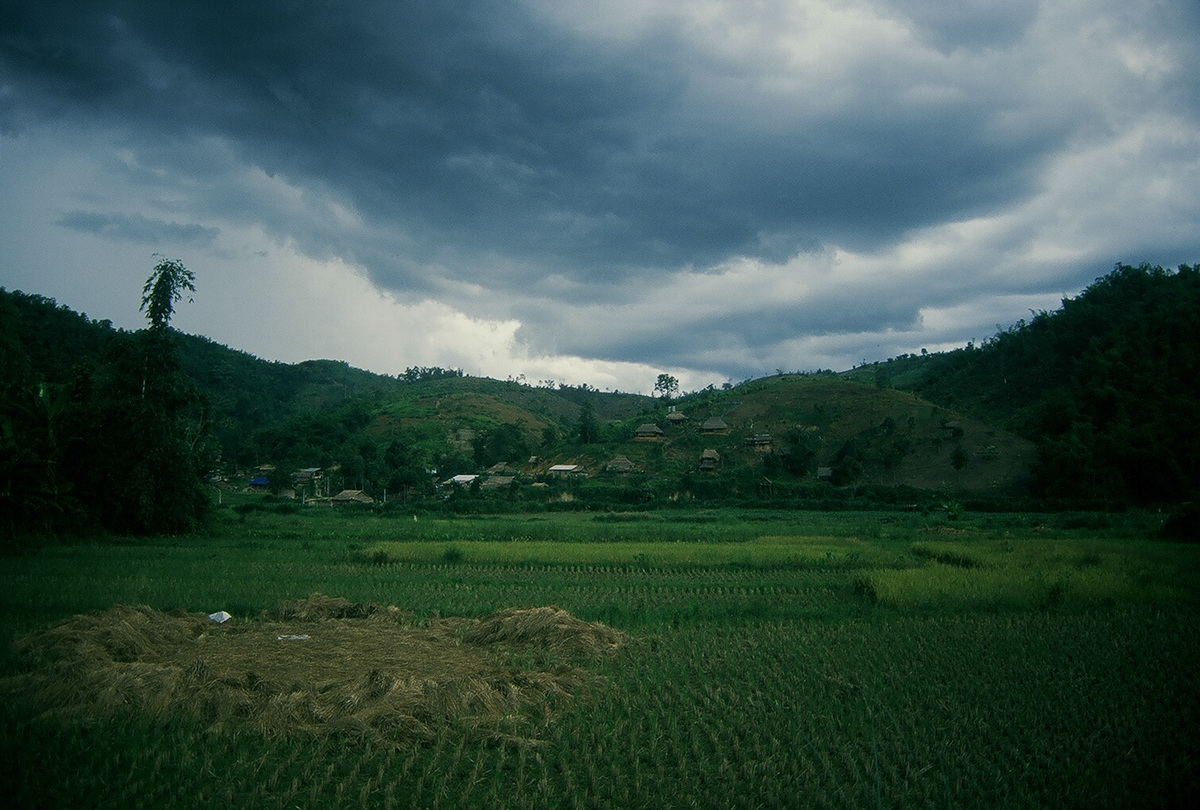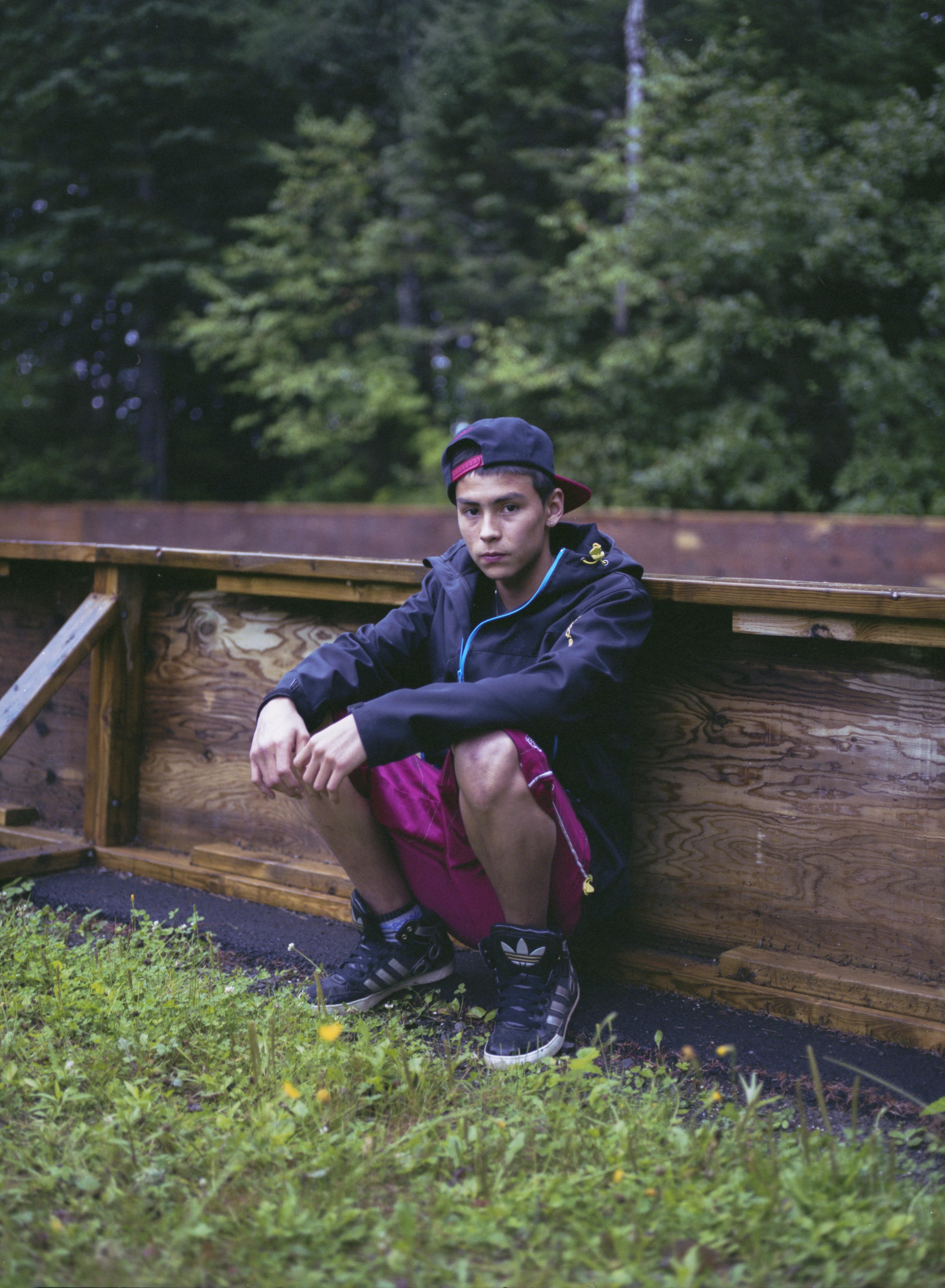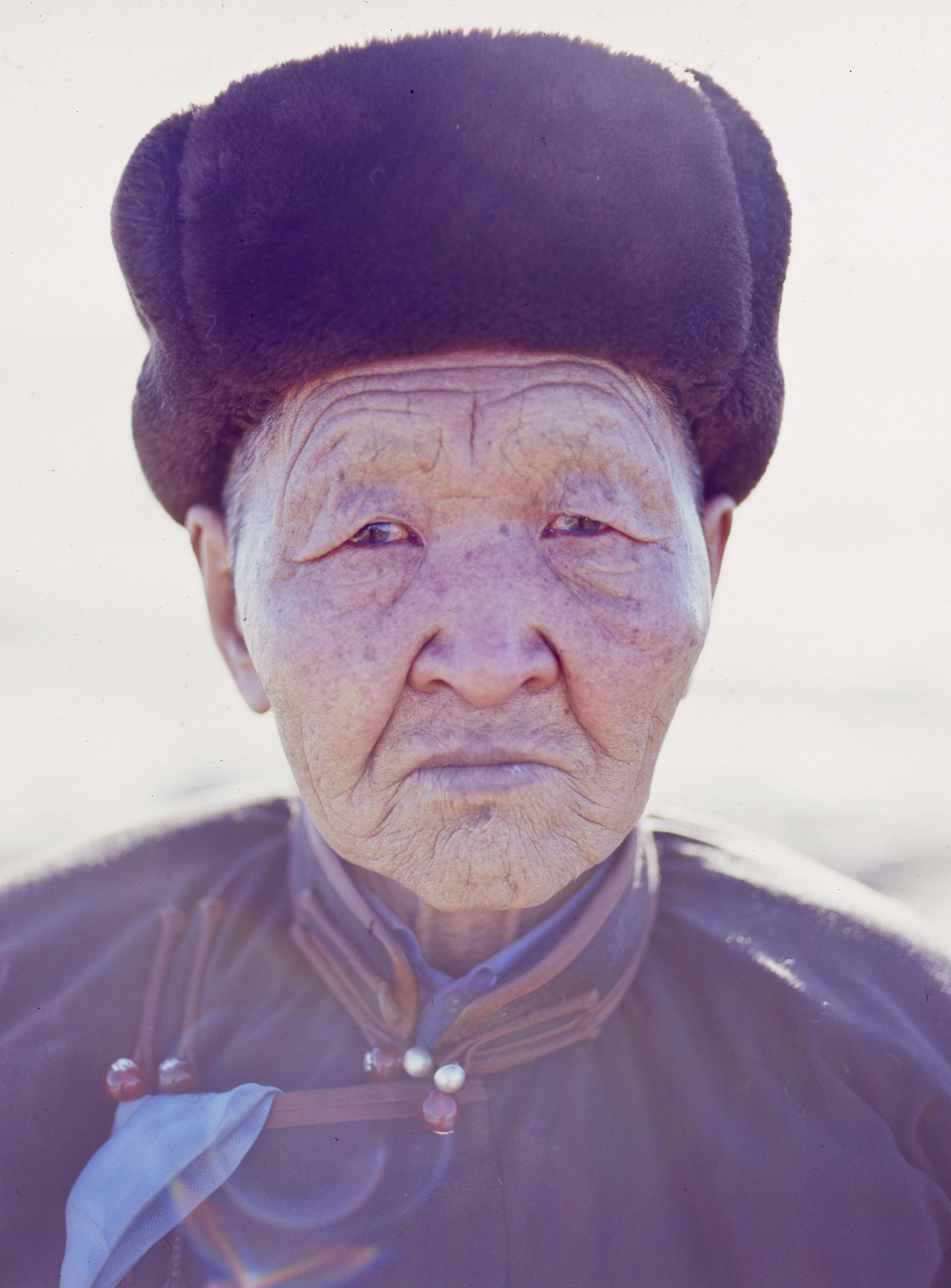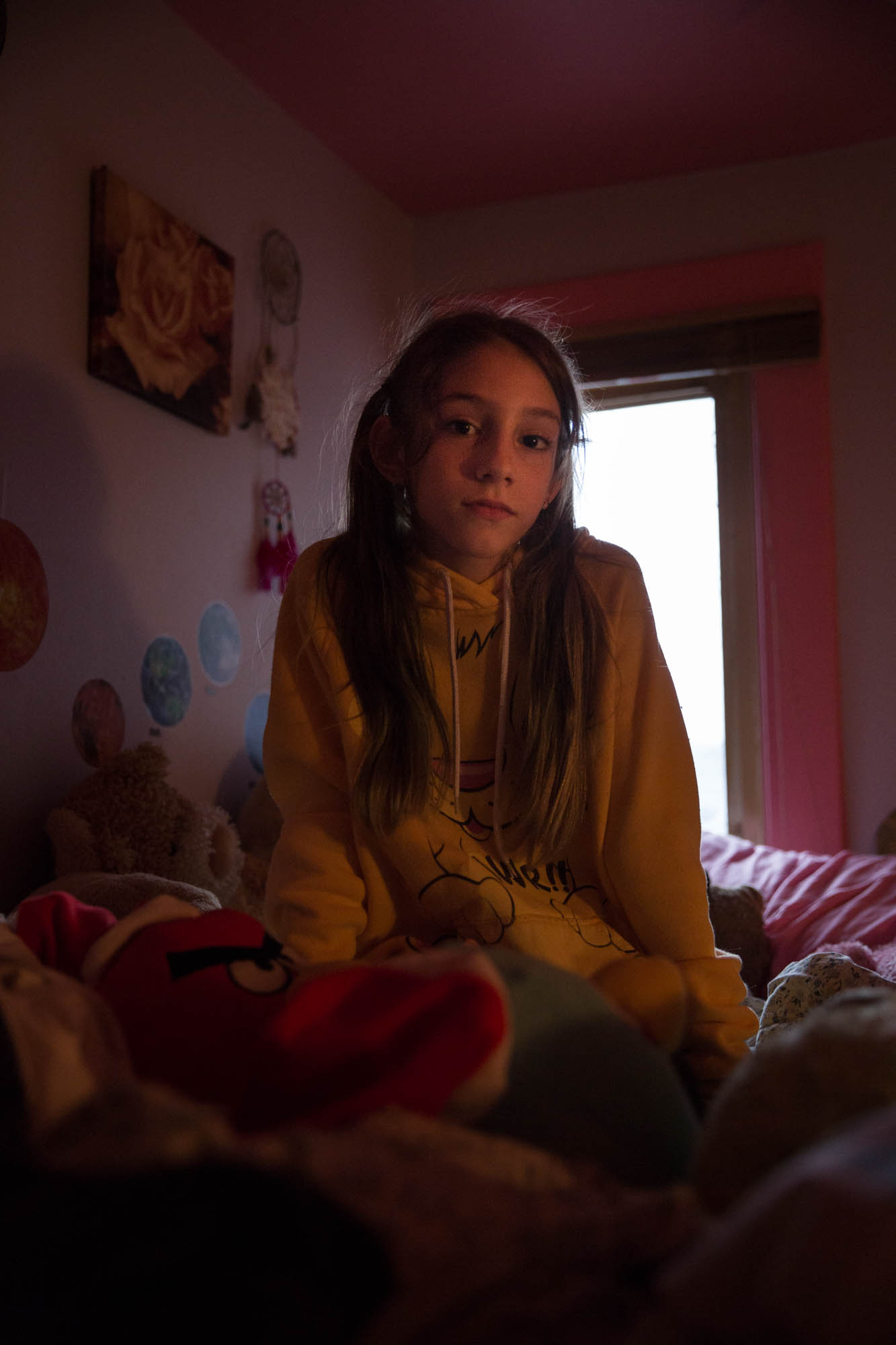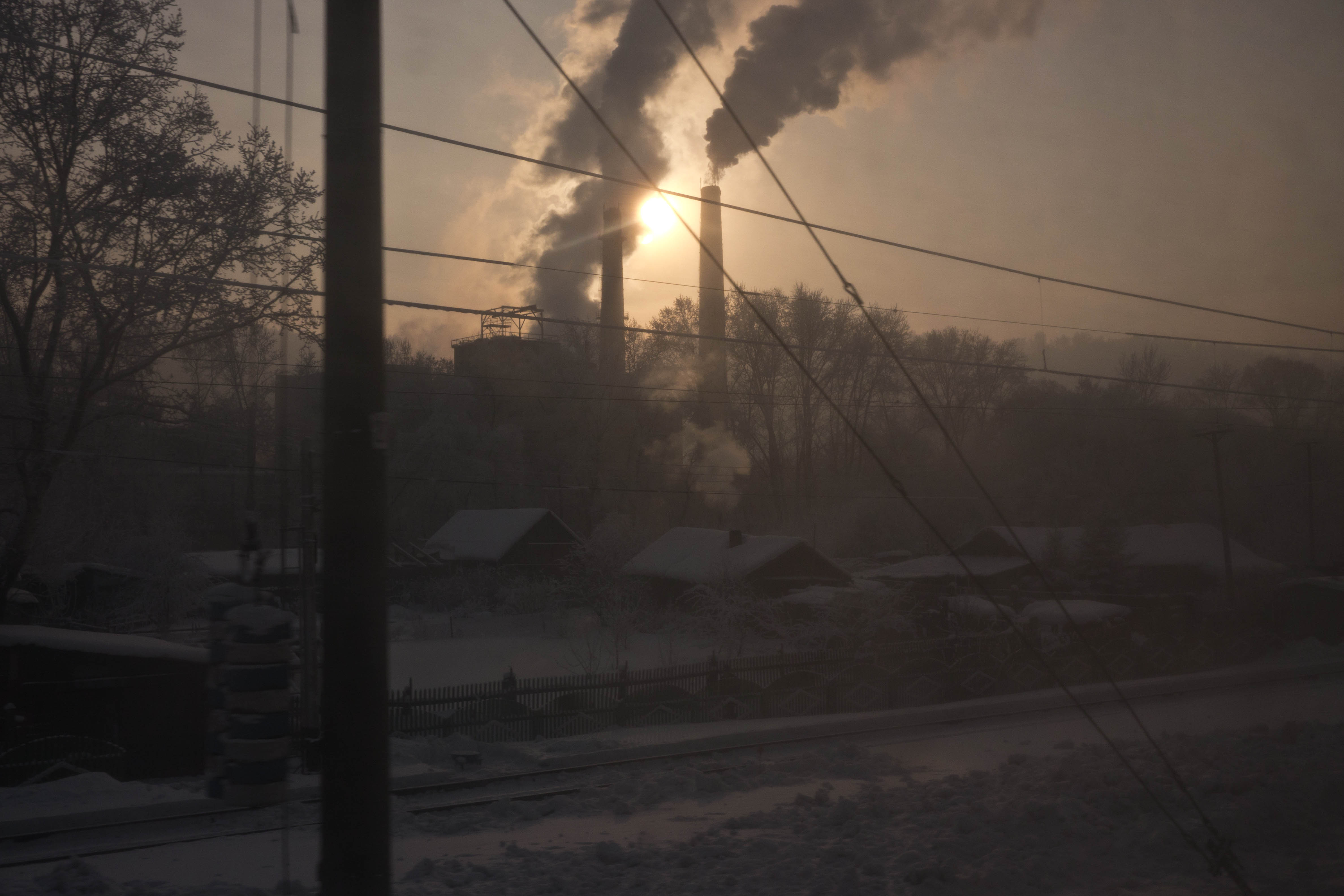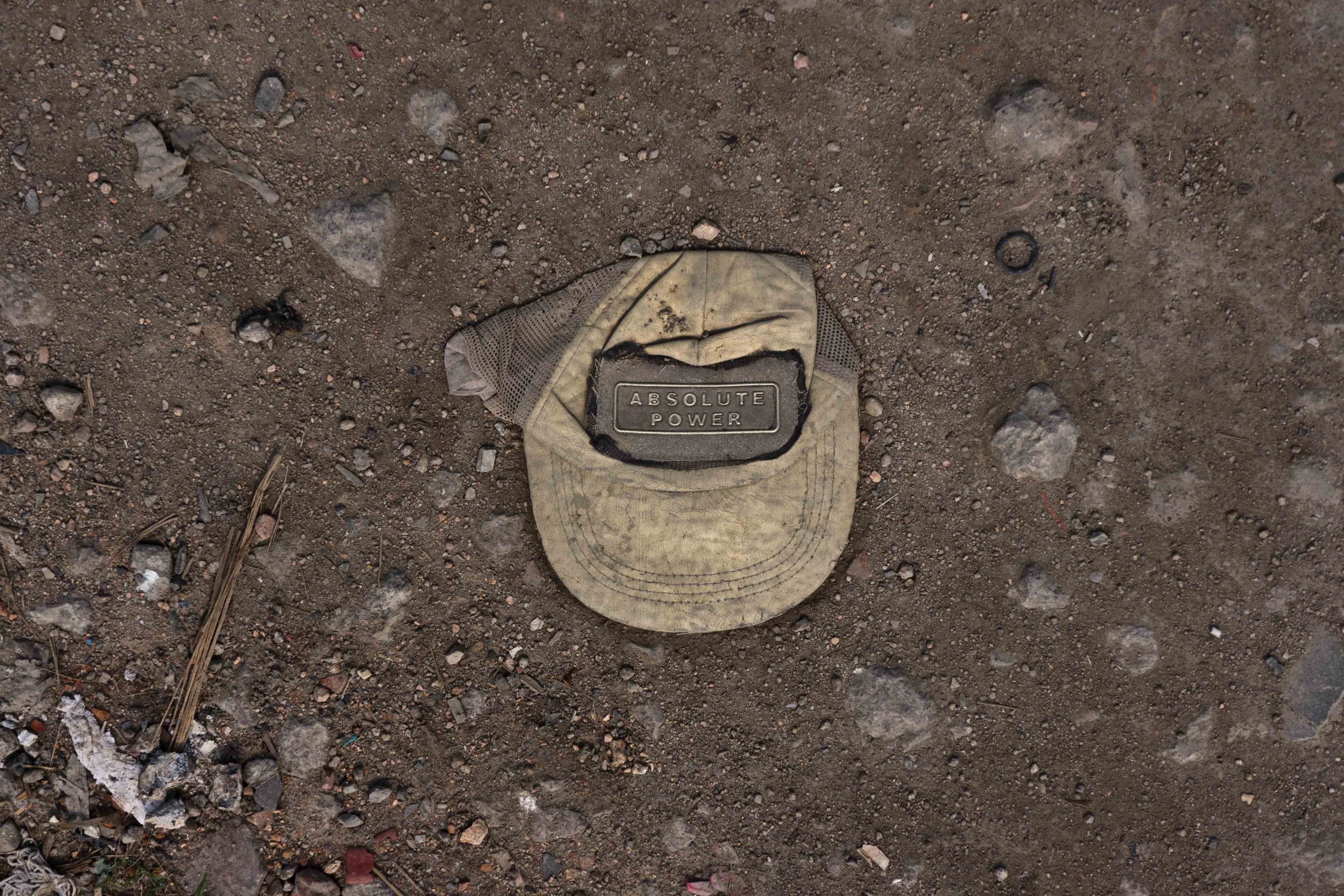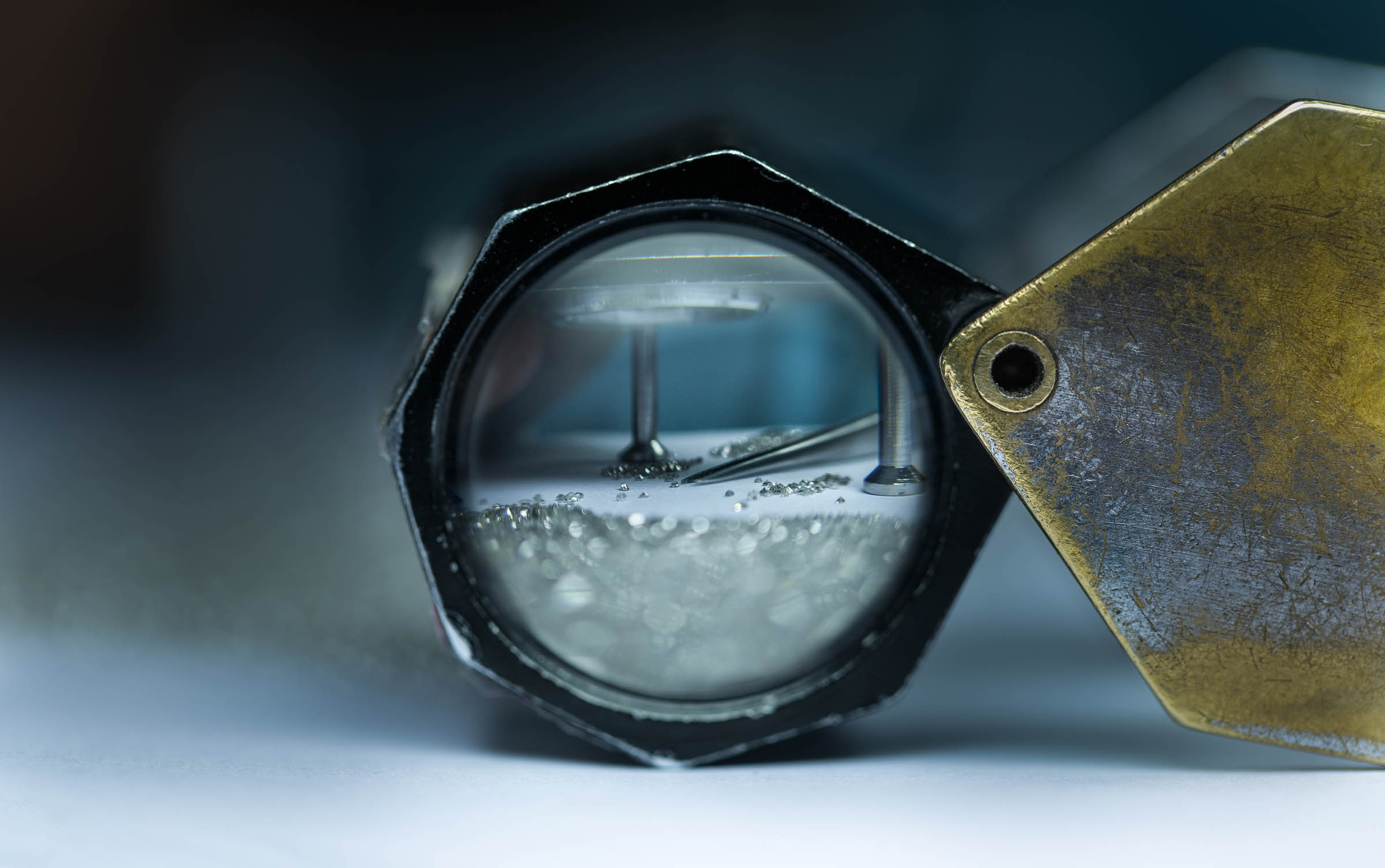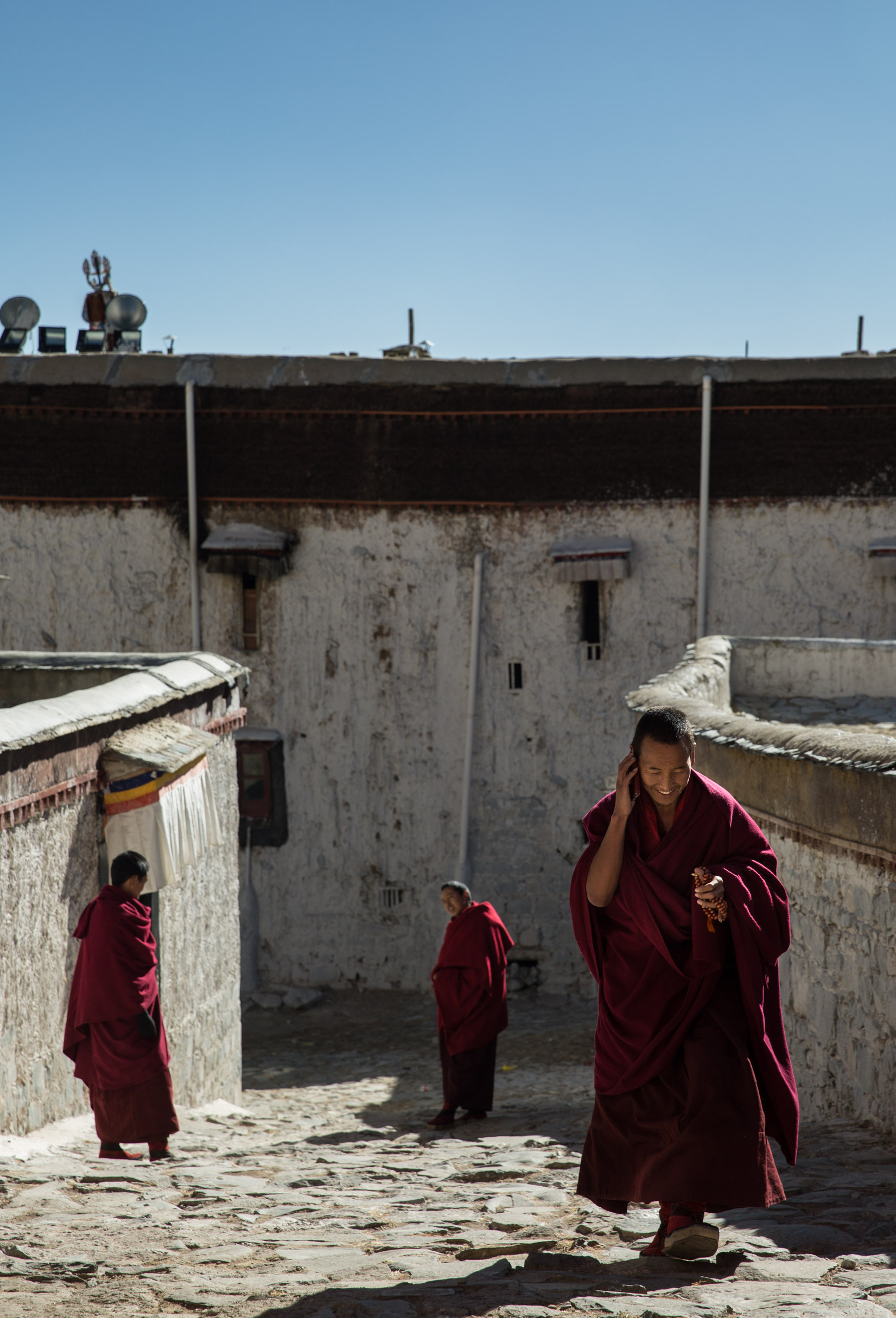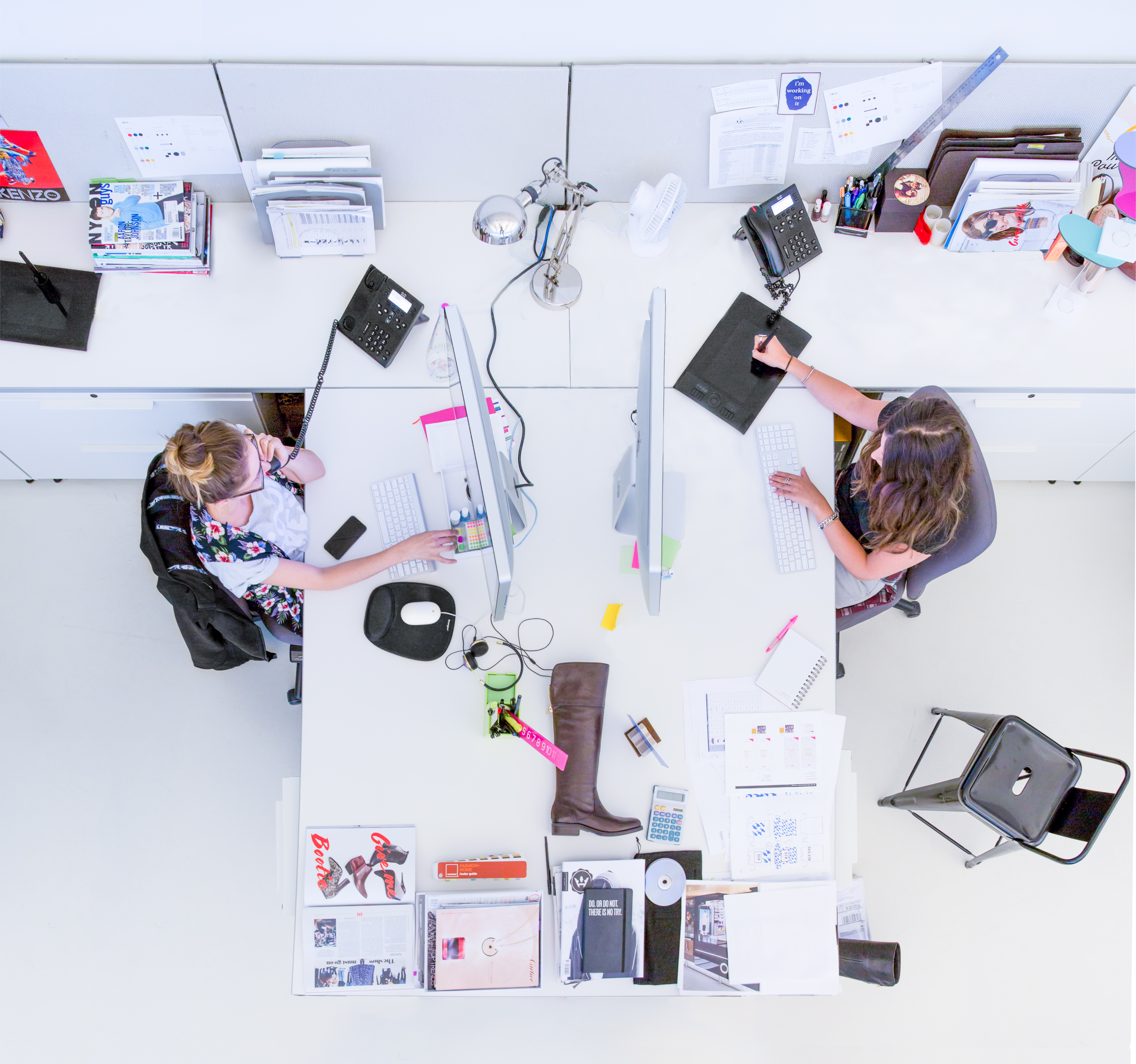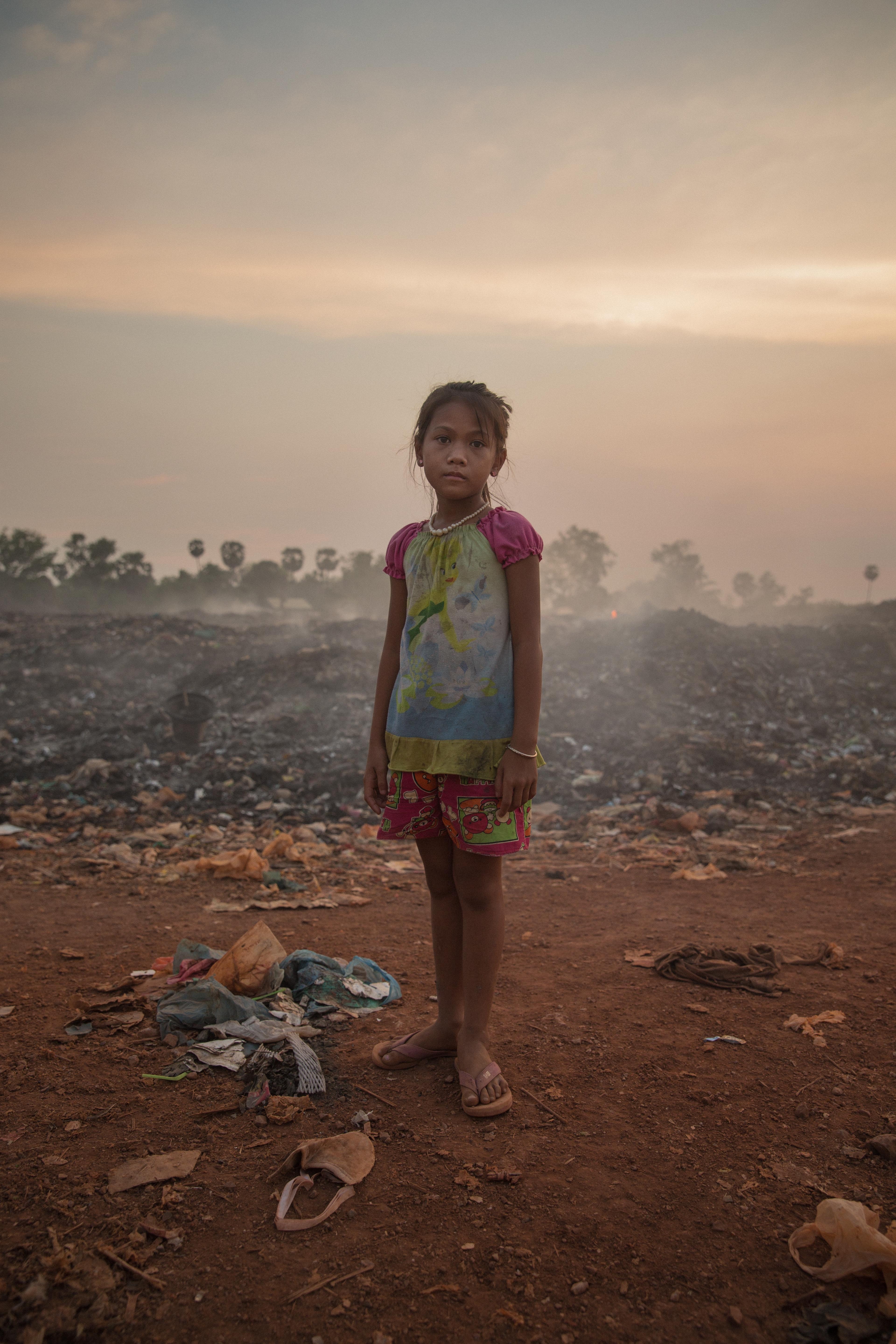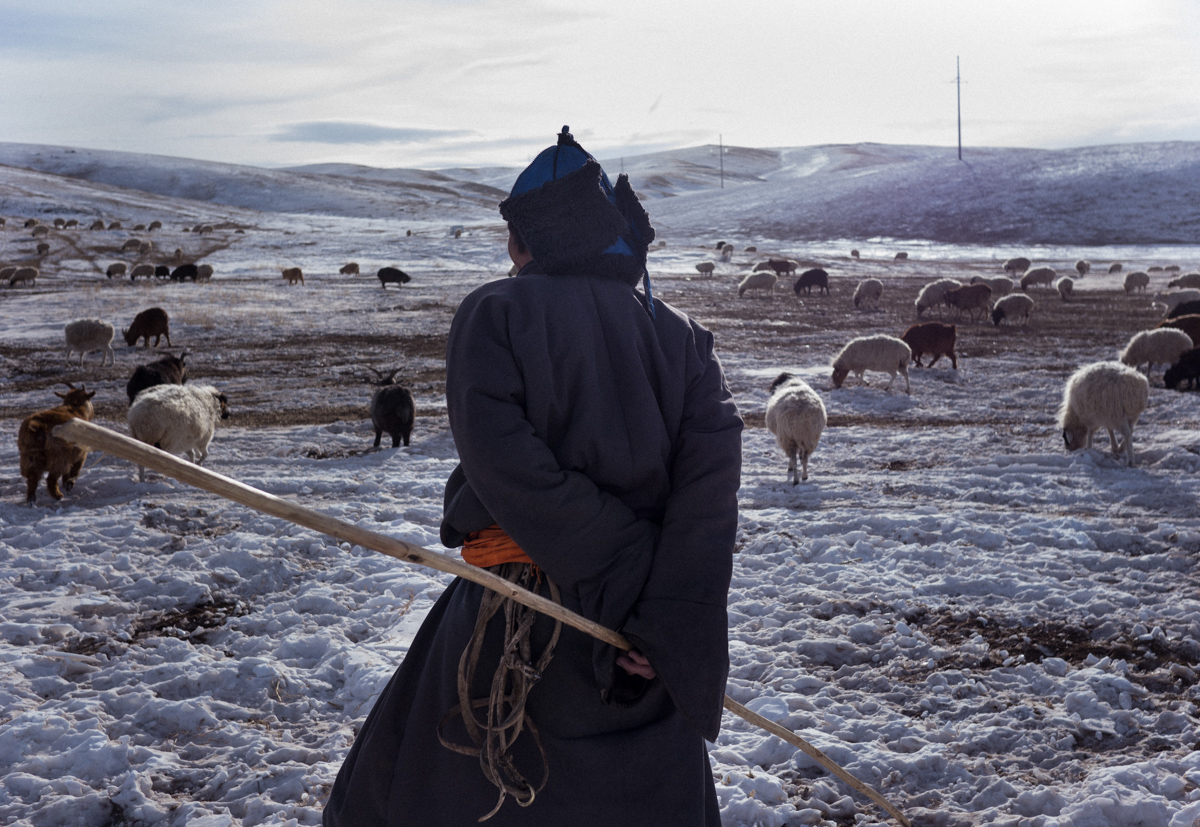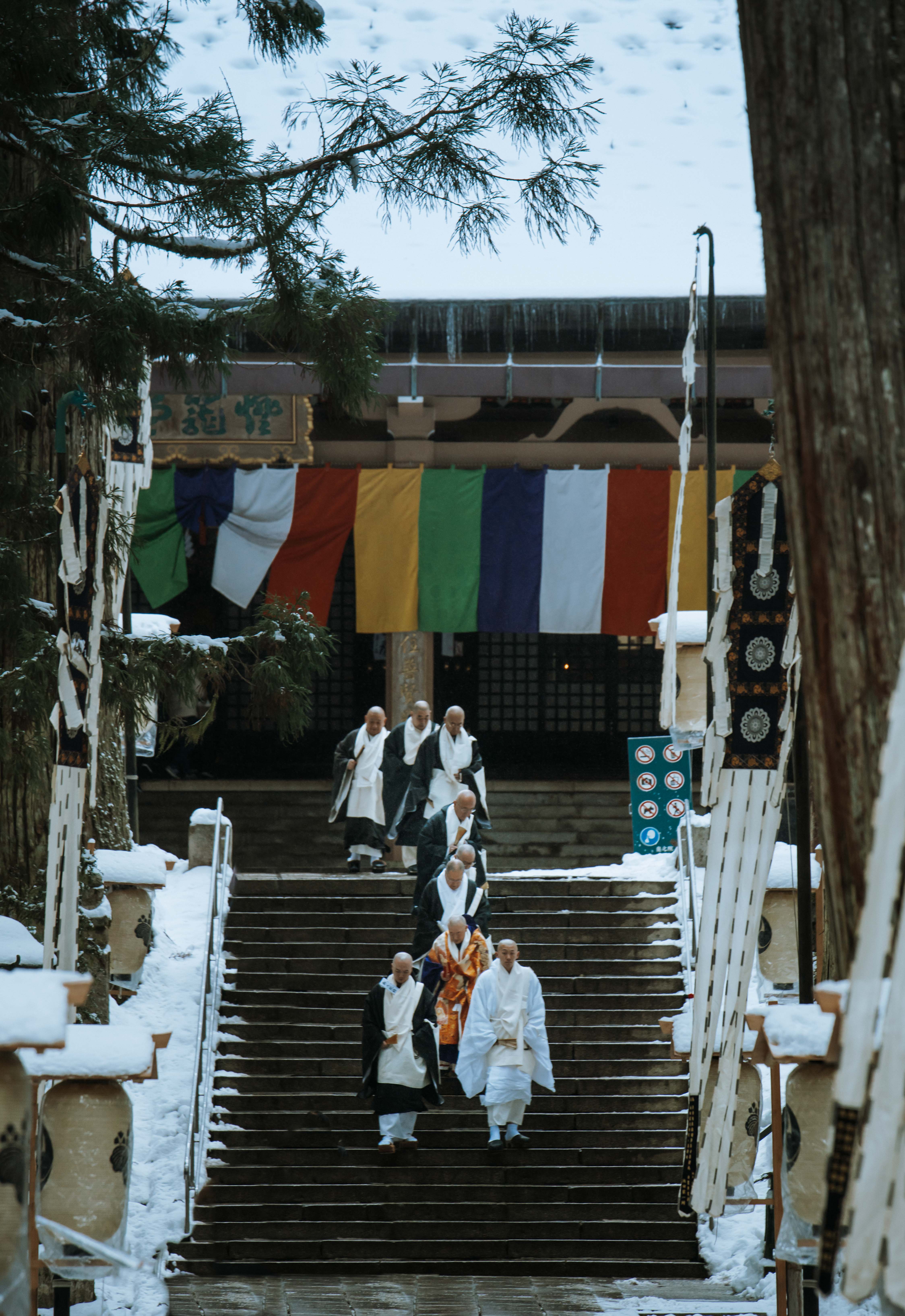The Moken are an Austronesian group of Sea Nomads that live in the Mergui archipelago between Burma and the islands of Thailand’s North Andaman coast. Though living on islands officially belonging to Burma and Thailand, they have a unique language, culture and lifestyle, passed down verbally as they have no written language.

A group of Moken
boys wait for parcels to deliver on a beach on North Surin Island, Thailand.
December 28, 2016.

Moken stilt
houses face the tumultuous waters of Bon Yai Bay, South Surin Island, Thailand
on January 2, 2017.
Traditionally,
the Moken have lived in mobile houseboats known as Kabang, long narrow boats
carved from tree trunks, though in the aftermath of the 2004 Tsunami, known to
the Moken as the “Laboon”, they have established permanent settlements like the
one in Bon Yai Bay, on South Surin Island.

Krue (meaning teacher) Krange is the only Surin Moken to have been educated off-island. After her studies in education, she returned to South Surin to become the island's sole resident elementary schoolteacher. South Surin Island, Thailand. January 2, 2017
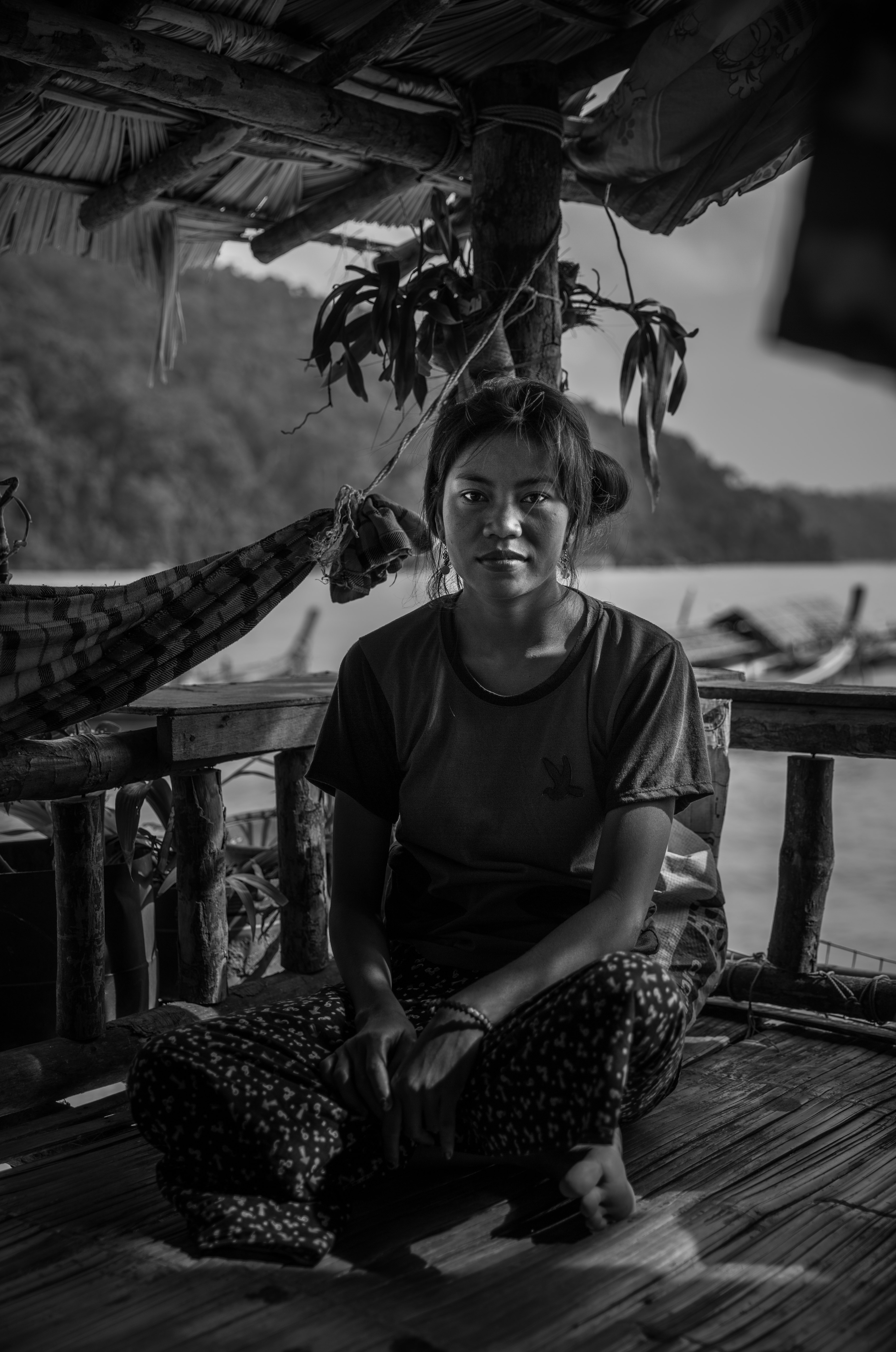
A Moken woman on the front porch of her family home in Bon Yai Bay, South Surin Island, Thailand. January 2, 2017.
Moken woman. Bon Yai Bay, Thailand. January 2, 2017

Moments before
the Tsunami reached the Surin Islands, Moken fishermen noticed disturbances in
the water and were able to warn campers on North Surin Island to reach higher
ground as well as taxi others to isolated waters, saving many lives.

Moken boys play
next to a defunct "Kabang" houseboat on South Surin Island, Thailand.
January 2, 2017.

A defunct Moken
Kabang boat lies on the beach of Bon Yai Bay, Thailand on January 2, 2017.
Since the Moken built their permanent households after the 2004 Tsunami, most
Kabang, once the Moken houseboats, lie unused in between houses.
Prior to the Laboon, the Moken were a relatively unknown tribe considered stateless and moving freely along the Andaman coast regardless of territorial waters. Once settled, Thai authorities were able to register them as Thai citizens when the Queen Mother Princess Srinagarindra gave the Surin villagers the Thai surname of “Kla Talay”, or “Brave of the Sea”.

Moken woman and child, South Surin Island, Thailand. January 2, 2017.

A young Moken girl sells handicrafts to tourists on South Surin Island, Thailand. January 2017. While most of the Moken boys and men fish, courrier or work in the local tourist industry, elders, women, and children remain in Bon Yai Bay, selling items to tourist groups that visit them daily.
The Laboon was
such a defining event for the Moken people that it has passed on into myth and
has already been integrated into their folklore. According to the Moken, the
God of Waves became angry at the pollution and damage that was being done to
the sea and created the Tsunami as punishment.
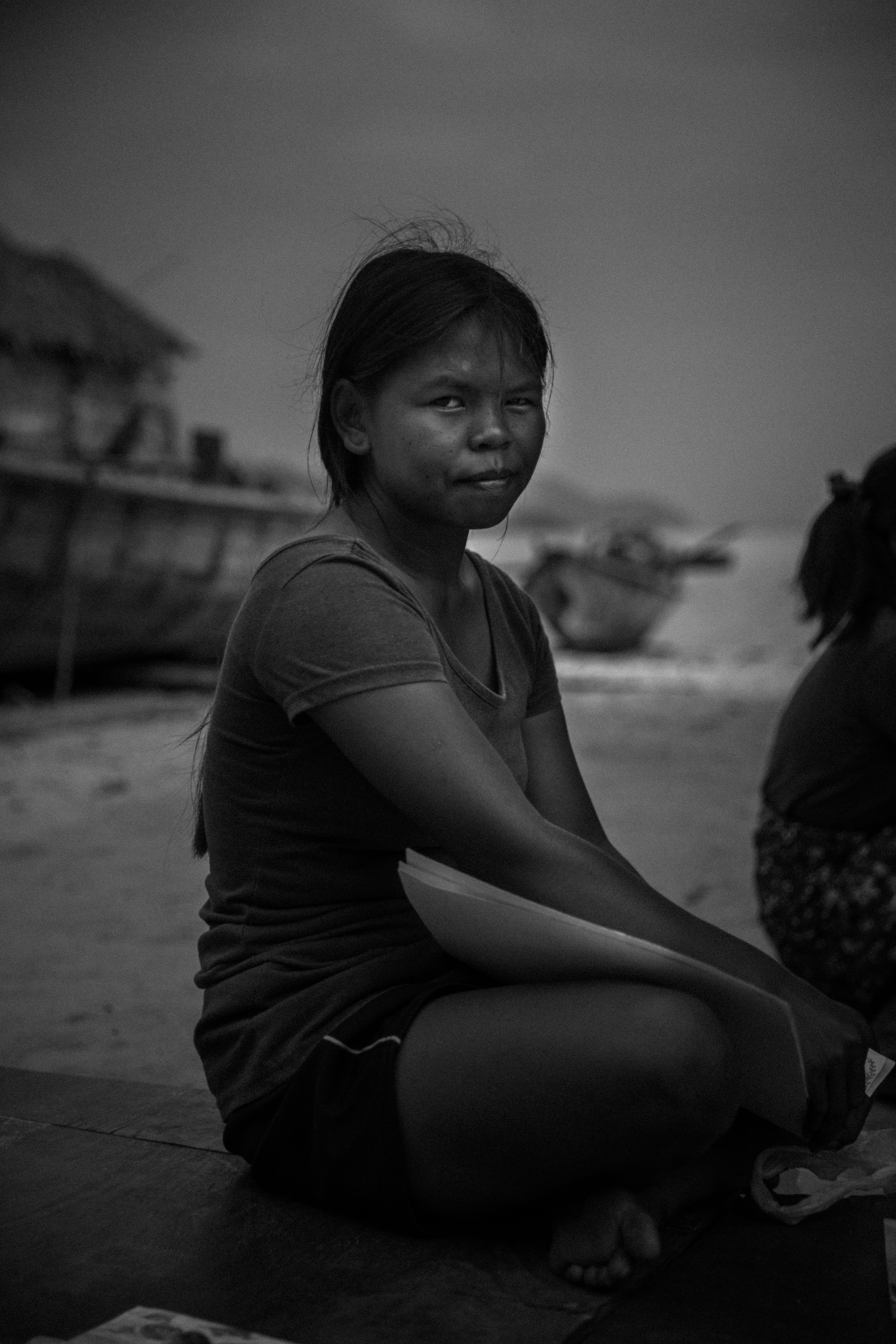
A young Moken woman sells handicrafts to tourists on South Surin Island, Thailand. January 2017.

One of the Moken Long-Tail taxi boats anchored in Bon Yai Bay, South Surin Island, Thailand. January 2, 2017. Though once living exclusively off the sea, the now sedentary Moken supplement their income as taxi drivers, carrying tourists or supplies between beaches, islands and the mainland.

Two Moken boys fetch fresh water from a spring in the mountains near their village in Bon Yai Bay, South Surin Island, Thailand. January 2017.
Since the
establishment of the village in Bon Yai Bay, tourists often come for hour-long
visits, often outnumbering the villagers themselves. The villagers, in turn,
sell handicraft and postcards to supplement their income as local guides,
fishermen and courriers between Surin and the mainland.

A young Moken girl breaks down empty cans to recycle into handicraft, such as miniature boats and houses that local children sell to tourist groups visiting South Surin Island. January 2017.

Salama is the only Moken elder in Bon Yai Bay to fluently speak Thai. As such he often greets tour groups from the mainland. January 2017.
The Surin
Islands are officially a Thai National park. The only non-Moken establishments
are a Navy Search-and-rescue base and small camping grounds on North Surin
Islands.

A Moken long-tail driver taxis between South Surin Island, where the Moken village is located, and the tourist campsites on North Surin Island. Though traditionally nomadic fishermen, the Moken now mostly work in the booming local tourism industry, ferrying passengers to different dive sites around the islands. January 2017.

